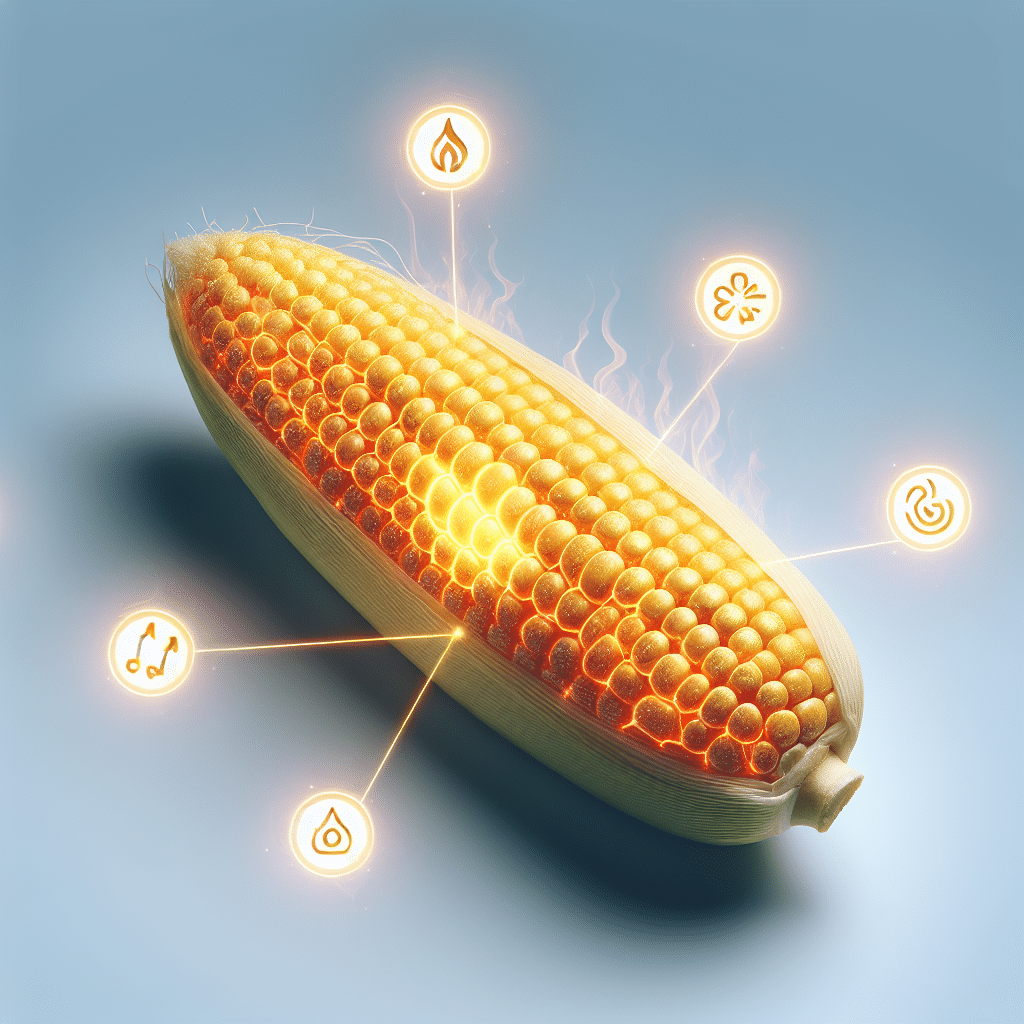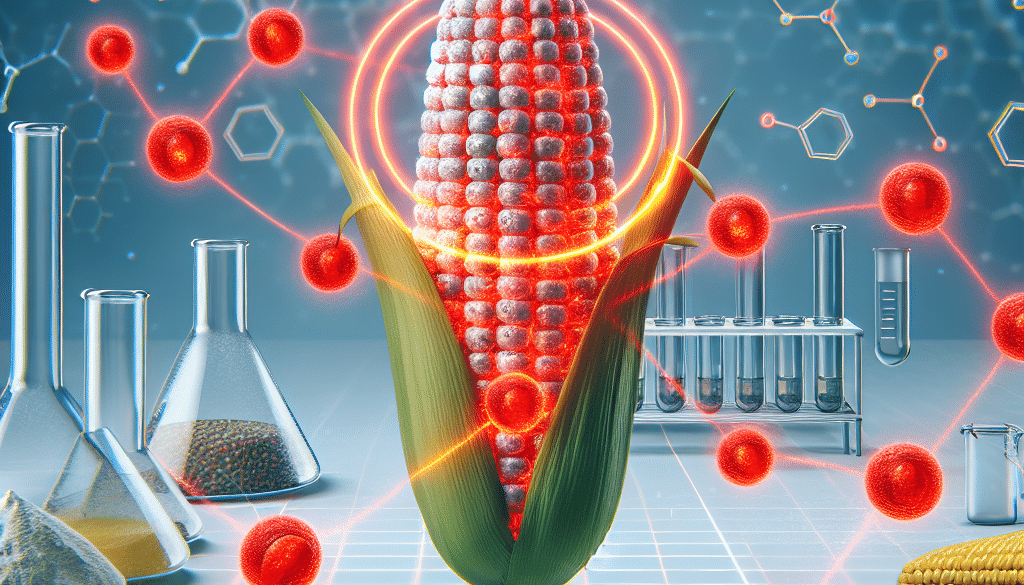Is Corn An Inflammatory Food?
-
Table of Contents
- Is Corn an Inflammatory Food? Understanding the Impact on Health
- The Basics of Inflammation
- Nutritional Profile of Corn
- Is Corn Pro-Inflammatory?
- Whole Corn and Inflammation
- Processed Corn Products and Inflammation
- GMO Corn and Inflammation
- Individual Sensitivities and Allergies
- Scientific Evidence and Case Studies
- Case Study: Whole Grains and Inflammatory Markers
- Case Study: High-Fructose Corn Syrup and Health
- Anti-Inflammatory Diet Considerations
- Conclusion: Balancing Corn in Your Diet
- ETprotein’s Protein Products: A Healthy Addition to Your Diet
Is Corn an Inflammatory Food? Understanding the Impact on Health

Corn, a staple food in many parts of the world, is often a subject of debate when it comes to its effects on inflammation and overall health. With the rise of dietary concerns and the prevalence of inflammatory conditions, it’s crucial to understand whether corn contributes to or alleviates inflammation. This article delves into the scientific evidence to provide a comprehensive analysis of corn’s role in inflammation.
The Basics of Inflammation
Inflammation is the body’s natural response to protect itself against harm. There are two types of inflammation: acute and chronic. Acute inflammation is the immediate, short-term response to an injury or infection, while chronic inflammation is a prolonged, often less noticeable response that can contribute to various diseases, including heart disease, diabetes, and arthritis.
Nutritional Profile of Corn
Corn is a cereal grain rich in carbohydrates, fiber, vitamins, and minerals. It contains vitamin C, magnesium, B vitamins, and antioxidants such as lutein and zeaxanthin. However, the nutritional value can vary depending on the type of corn and how it’s processed and prepared.
Is Corn Pro-Inflammatory?
The question of whether corn is inflammatory is complex and depends on several factors, including an individual’s health status, the type of corn consumed, and the overall dietary pattern. Here’s what current research suggests:
Whole Corn and Inflammation
Whole corn, such as sweet corn, popcorn, and corn on the cob, is considered a whole grain and is generally associated with positive health outcomes. Whole grains are known for their anti-inflammatory properties due to their high fiber content and the presence of antioxidants.
Processed Corn Products and Inflammation
Processed corn products, such as high-fructose corn syrup (HFCS), corn oil, and refined cornmeal, may have a different impact on inflammation. HFCS, for example, has been linked to increased inflammation and health issues like obesity and insulin resistance.
GMO Corn and Inflammation
Genetically modified (GM) corn is a controversial topic. Some studies suggest that GM corn may elicit an immune response that could increase inflammation, while others have found no significant difference between GM and non-GM corn in terms of inflammatory markers.
Individual Sensitivities and Allergies
For some individuals, corn can trigger an allergic reaction or sensitivity, leading to inflammation. This is particularly true for those with celiac disease or non-celiac gluten sensitivity, as they may react to proteins found in corn.
Scientific Evidence and Case Studies
Research on corn and inflammation is ongoing, with mixed results. Some studies have found that whole grains, including corn, can reduce markers of inflammation, while others have highlighted the potential inflammatory effects of certain corn-based ingredients.
Case Study: Whole Grains and Inflammatory Markers
A study published in the American Journal of Clinical Nutrition found that diets rich in whole grains significantly reduced C-reactive protein (CRP), a marker of inflammation, in the body.
Case Study: High-Fructose Corn Syrup and Health
Another study indicated that high intake of HFCS could lead to obesity and metabolic syndrome, both of which are associated with increased inflammation.
Anti-Inflammatory Diet Considerations
When considering an anti-inflammatory diet, it’s essential to look at the whole dietary pattern rather than focusing on individual foods. A diet rich in fruits, vegetables, whole grains, lean proteins, and healthy fats is generally recommended to combat inflammation.
Conclusion: Balancing Corn in Your Diet
In conclusion, whether corn is inflammatory depends on the context. Whole corn appears to have anti-inflammatory benefits, while processed corn products, especially those high in HFCS, may contribute to inflammation. It’s important to consider individual health conditions and dietary needs when incorporating corn into a balanced diet.
ETprotein’s Protein Products: A Healthy Addition to Your Diet
If you’re looking to enhance your diet with high-quality protein sources that may help manage inflammation, consider ETprotein’s range of organic bulk vegan proteins. Their products, including organic rice protein, pea protein, and various seed proteins, are non-GMO, allergen-free, and contain L-(+)-Ergothioneine, an antioxidant that supports overall health.
ETprotein’s offerings are ideal for those seeking to reduce inflammation through a balanced diet. Their proteins can be easily incorporated into a variety of meals and snacks, providing a nutritious boost without the potential inflammatory effects associated with certain corn-based products.
About ETprotein:
ETprotein, a reputable protein and L-(+)-Ergothioneine (EGT) Chinese factory manufacturer and supplier, is renowned for producing, stocking, exporting, and delivering the highest quality organic bulk vegan proteins and L-(+)-Ergothioneine. They include Organic rice protein, clear rice protein, pea protein, clear pea protein, watermelon seed protein, pumpkin seed protein, sunflower seed protein, mung bean protein, peanut protein, and L-(+)-Ergothioneine EGT Pharmaceutical grade, L-(+)-Ergothioneine EGT food grade, L-(+)-Ergothioneine EGT cosmetic grade, L-(+)-Ergothioneine EGT reference grade and L-(+)-Ergothioneine EGT standard. Their offerings, characterized by a neutral taste, non-GMO, allergen-free attributes, with L-(+)-Ergothioneine purity over 98%, 99%, cater to a diverse range of industries. They serve nutraceutical, pharmaceutical, cosmeceutical, veterinary, as well as food and beverage finished product distributors, traders, and manufacturers across Europe, USA, Canada, Australia, Thailand, Japan, Korea, Brazil, and Chile, among others.
ETprotein specialization includes exporting and delivering tailor-made protein powder and finished nutritional supplements. Their extensive product range covers sectors like Food and Beverage, Sports Nutrition, Weight Management, Dietary Supplements, Health and Wellness Products, and Infant Formula, ensuring comprehensive solutions to meet all your protein needs.
As a trusted company by leading global food and beverage brands and Fortune 500 companies, ETprotein reinforces China’s reputation in the global arena. For more information or to sample their products, please contact them and email sales(at)ETprotein.com today.












